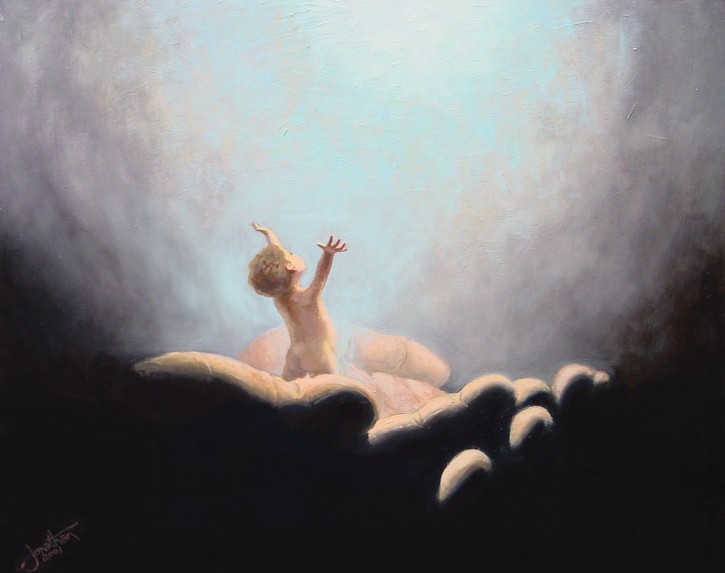I came across an interesting blog post the other day, that gave eight philosophical questions that man believes we may never solve. One of the questions is, “is our universe real?” I researched many different facets of this question in my 45 page paper, “A Modern Worldview from Plato’s Cave.”
In this blog post it states:
…it could very well be that we’re the products of an elaborate simulation… Moreover, we may not be who we think we are. Assuming that the people running the simulation are also taking part in it, our true identities may be temporarily suppressed, to heighten the realness of the experience. [emphasis added]
I think the restored gospel holds some of the answers to these questions. Do we know who we are? In a small way, yes. We are children of God. That is a very loaded statement. Are our true identities being suppressed? It’s possible. C.S. Lewis once remarked:
It is a serious thing to live in a society of possible gods and goddesses, to remember that the dullest and most uninteresting person you talk to may one day be a creature which, if you saw it now, you would be strongly tempted to worship… There are no ‘ordinary’ people. You have never talked to a mere mortal. Nations, cultures, arts, civilisations — these are mortal, and their life is to ours as the life of a gnat. But it is immortals whome we joke with, work with, marry, snub and exploit — immortal horrors or everlasting splendours. [emphasis added]
And in another place Lewis said:
The command ‘Be ye perfect’ is not idealistic gas. Nor is it a command to do the impossible. He is going to make us into creatures that can obey that command. He said (in the Bible) that we were ‘gods’ and He is going to make good His words. If we let Him – for we can prevent Him, if we choose – He will make the feeblest and filthiest of us into a god or goddess, dazzling, radiant, immortal creature, pulsating all through with such energy and joy and wisdom and love as we cannot now imagine, a bright stainless mirror which reflects back to God perfectly (though, of course, on a smaller scale) His own boundless power and delight and goodness. The process will be long and in parts very painful; but that is what we are in for. Nothing less. He meant what He said. [emphasis added]
Like Christ, we have come from a spiritual state, a spirit that is made of refined and pure matter, perhaps even glorious matter, to an incarnate state, a body which is carnal, imperfect, and exhibits corrupt qualities of mortal flesh. Moreover, we have the veil placed over us, so we cannot remember the past. These things suppress our true identities, who we really are, so that we might gain from this probation the experiences we need. But who are we deep down? We are children of God. That is who is at our core. God is our father. That is who we truly are if we are to step outside Plato’s cave into the light of the sun. Most of the time we only see the shadows on the wall. If we were to see, if only for a moment, what it really means to be a child of God, I think we would be awe-struck. Like the Greeks thought their demigods such as Hercules were the offspring of God and were elevated, powerful beings, so too are we, as children of God, more than the animals and other creatures we find ourselves with. Each and every one of us is a dazzling, radiant, immortal being, underneath this mortal flesh.
We are God’s offspring, with the potential to become like Him. We too have glory, if we will let our light so shine (Matthew 5:16; 3 Nephi 12:16). We may not be able to see it today, but some day we will.
Continue reading at the original source →




